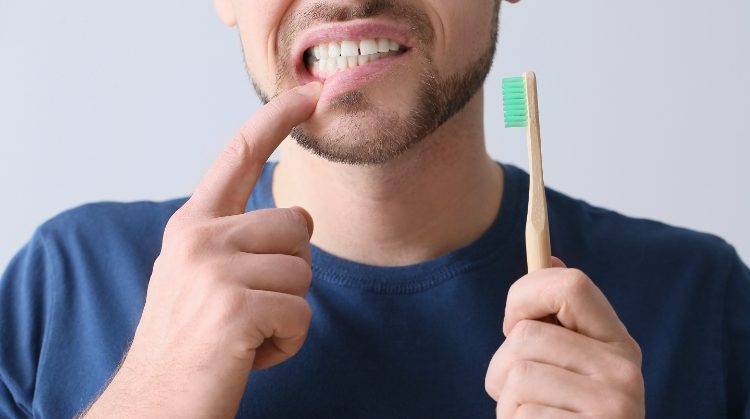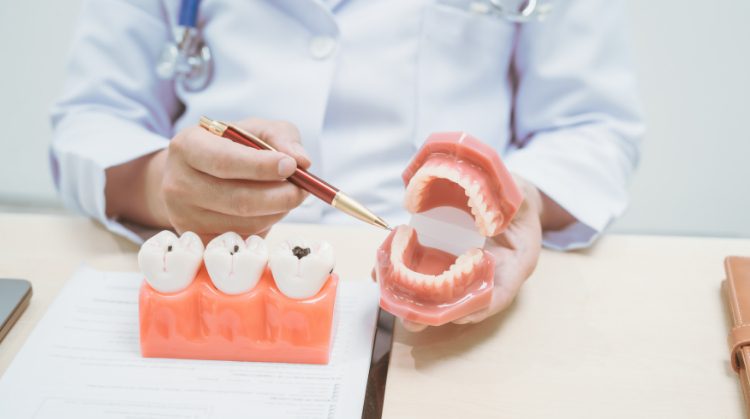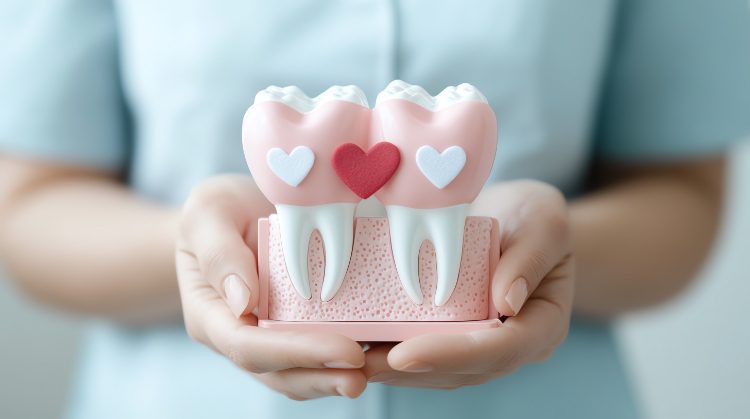Only a few other things come close to the embarrassment and anxiety that comes with bad breath. Did you know bad breath is actually a medical condition? It’s known as halitosis in the medical and dental community, and it can be caused by poor dental habits, dental cavities and tooth decay, among other things. These seven tips can help you achieve a permanent solution.
Maintain proper oral hygiene
This is the most important thing you can do to avoid bad breath. Stay committed to your oral hygiene – every single day, twice a day! Brush and floss your teeth the right way at least twice, every day. Food and drinks can cause bacteria accumulation on the tongue and inside the cheeks. Brushing after meals helps, or even a simple swish of water can help keep teeth cleaner between real brushing and flossing. Some people also like to carry a travel-size brush and paste with them to work or school for this reason.
Watch what you eat
Certain foods may contribute to your bad breath. Foods like onions, garlic, coffee and alcohol can trigger it. You should try to avoid these and swap them out for more zinc-rich foods like beef, low-fat yogurt and lentils. People who suffer from halitosis often have low zinc levels.
Stop smoking
Smoking will dry out your mouth. Dry mouth is really bad for your oral health. It will also leave foul-smelling particles behind, even long after you put out your cigarette. In addition to contributing to bad breath, smoking is very bad for your lungs.
Drink enough water
Sometimes, bad breath can be a symptom of dry mouth. The mouth loses its ability to wash away bacteria and food particles without saliva. So it’s important that you stay hydrated at all times if you’re experiencing halitosis. We can also help provide solutions if you believe dry mouth is a chronic problem for you.
Chew parsley after eating
Parsley is rich in chlorophyll, a natural deodorizer. Chewing this after a meal can help freshen your breath. You can also try sugar-free gum. Sugar-free gum has even been known to help prevent cavities.
Try natural oils
Peppermint oil, tea tree oil, thyme oil and some other natural oils may help fight bad breath because of their antibacterial properties. Some people apply a few drops on the tongue, sprinkle a little on their toothpaste before brushing, or use dental hygiene products that contain one or more of these oils. Be sure to consult your doctor before ingesting any oils.
See your dentist
And finally, you have to see your dentist for help. Regular dental visits help can help you tackle issues like this before they degenerate into something serious. Leaving it unattended will just compound the problem.
You can schedule a visit or contact Dr. Norman and the team at 425-320-0742 for more information.



